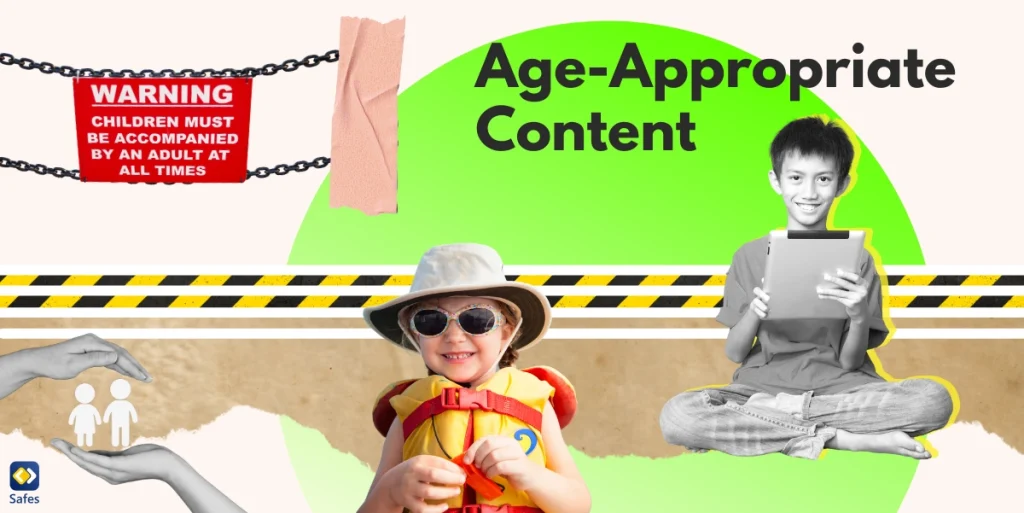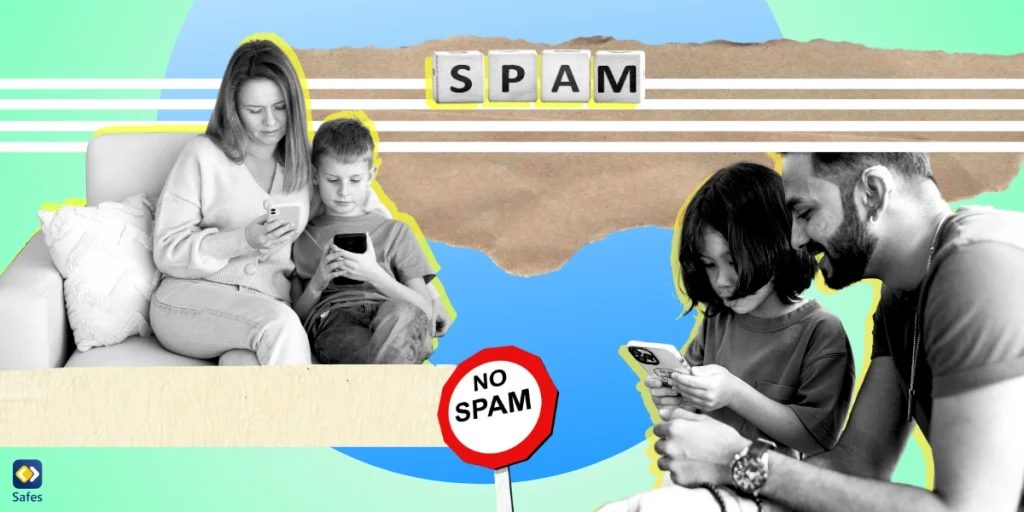Don’t we parents all want to provide our children with experiences that enrich their minds and nurture their growth? This would be easier if we lived in a world with no internet and screens! In this digital age, where screens are everywhere, we need to ensure that our children are exposed to age appropriate content.
Download and Start Your Free Trial of the Safes Parental Control App
Children are exposed to inappropriate content, from the shows they watch to the games they play and the websites they visit. As such, we need to evaluate the appropriateness of the content they engage with. In this guide, we’ll explore practical tips and strategies for evaluating age-appropriate content for your children. This way, you can make informed decisions about their media consumption habits.
What Is Age-appropriate Content?
These pieces of content refer to media, including movies, TV shows, books, games, and online materials, that are suitable for a specific age group. These limitations are specified based on their cognitive, emotional, and social development. The appropriate viewing content for various ages is determined by considering factors such as language, themes, violence, sexual content, and complexity of ideas.
For example, content designed for preschoolers typically focuses on simple storylines, colorful visuals, and positive messages that support early learning and social skills development. On the other hand, content aimed at teenagers may contain more complex themes, including relationships, identity, and societal issues, while still being mindful of age-appropriate language or mature content. The goal of content labeled for a certain age range is to provide children with educational experiences that align with their developmental needs and abilities.

What Is an Example of Age Appropriateness?
Let’s consider an example of age-appropriate content in the context of television shows. For instance, “Sesame Street” is widely regarded as age-appropriate content for young children, typically preschoolers aged 2 to 5. The show features colorful characters, simple storylines, and educational segments focusing on fundamental skills like letters, numbers, and social-emotional development. The language used is clear and easy to understand for young viewers, and the themes are designed to entertain while also providing valuable learning opportunities.
In contrast, a show like “Game of Thrones” is not considered age-appropriate for young children due to its complex plotlines, mature themes, and graphic violence and nudity. The content is better suited for mature audiences, typically teenagers and adults. They can better understand and process the themes and content of the show.
What Are the Consequences of Age-Inappropriate Content for Kids?
Patrick Howse in a report he published on BBC, introduces pornography addiction as one of the impacts of accessing content that is not suitable for young ages. The report is also concerning the impact of overexposure to pornography on children and teenagers. It highlights the experiences of young individuals who have been negatively affected by viewing pornographic content, including changes in attitudes toward relationships, feelings of confusion, and pressure.
However, porn addiction in teens isn’t the only impact. Children who are exposed to violent scenes and horror movies are likely to develop aggressive behaviors as they grow. Sleep issues are reported as another consequence of watching scary movies that are not suitable for children. This makes it vital to understand what type of content to choose and know what to do when your child watches inappropriate things.
What Factors to Consider When Choosing Age Appropriate Content for Kids?
When you want to buy a new video game for your child or choose an animation for them to watch, you need to consider several factors to ensure that the material is suitable for their age group. Here are some key factors to take into account.
- Content Rating: Pay attention to content ratings provided by official rating systems such as the MPAA (Motion Picture Association of America), ESRB (Entertainment Software Rating Board), or TV Parental Guidelines. These ratings help you determine the age appropriateness of movies, video games, and TV shows based on their content.
- Themes and Topics: The themes and topics in the content need to align with your child’s age. Look for relevant and age-appropriate material based on your child’s interests and comprehension level.
- Language and Dialogue: Pay attention to the language and dialogue used in the content. Keep in mind that vocabulary and communication styles should be easy for children to understand. Avoid content with excessive use of profanity or inappropriate language.
- Violence and Intensity: Check if the material is mild and non-threatening for young children, avoiding realistic portrayals of violence or frightening scenes. This may cause fear or distress for them that will remain for years.
- Sexual Content: Be mindful of any sexual content in their TV shows or games. The content you choose for them needs to be free from explicit or nudity scenes.
- Positive Messages and Role Models: Look for content that promotes positive values, messages, and role models. You may need to take time and search if the characters are good examples of positive behaviors. For example, are Disney princesses good role models?

Final Word
With wide exposure to various types of content, ensuring that our children are exposed to age-appropriate content has become a top priority for parents everywhere. We’ve explored the importance of evaluating content based on factors such as themes or language to provide our kids with enriching and safe media experiences.
However, encountering age-inappropriate images, videos, and languages is inevitable for our young generation. Therefore, equipping yourself with parental control tools becomes even more important. We’re proud to present our parental control app, Safes that offers a solution for managing and monitoring your child’s online activities. It allows you to set appropriate content filters, screen time limits, and usage controls to ensure a safe and healthy digital environment for your family.
With Safes, you can have peace of mind knowing that your child is accessing age-appropriate content and staying safe online. Take control of your child’s digital experience today by downloading Safes for Android and iOS and taking advantage of our free trial.
Your Child’s Online Safety Starts Here
Every parent today needs a solution to manage screen time and keep their child safe online.
Without the right tools, digital risks and excessive screen time can impact children's well-being. Safes helps parents set healthy boundaries, monitor activity, and protect kids from online dangers—all with an easy-to-use app.
Take control of your child’s digital world. Learn more about Safes or download the app to start your free trial today!



